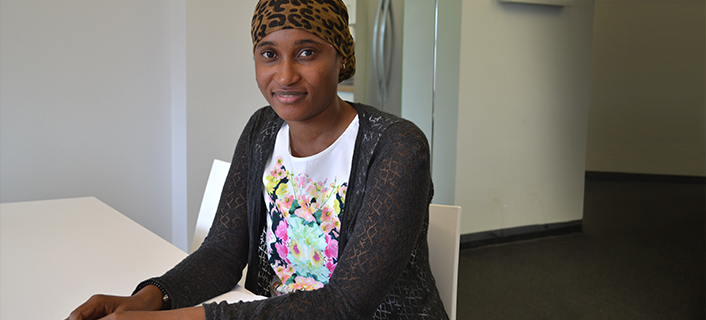Growing up, Fatima Kourouma saw firsthand the effect that asthma can have on a child. “My sister has asthma,” she says. “She was very severe. There were nights when she couldn’t sleep, and ER visits. She went through a lot.”
When she was thirteen, Ms. Kourouma and her family moved to New York City from Guinea, West Africa. “Coming to the United States I thought nothing could be wrong, everything is beautiful,” she remembers. But she soon learned how many New Yorkers suffer from poor health and housing. “It really, really shocked me,” she says.
Ms. Kourouma did not simply accept the challenges of living in a new country. Instead, she decided to confront them. With her experience growing up, she says, “I can really help out, especially when it comes to asthma.”
Four years ago, she joined a.i.r. nyc as a Community Health Worker. a.i.r. nyc’s Community Health Workers visit asthmatic children and their families at home, providing asthma education and helping to reduce environmental asthma triggers. a.i.r. bronx, the organization’s Bronx-based program, will play an integral role in BPHC’s asthma project.
It is not surprising that families open up to her during home visits; charismatic, witty, and engaging, her demeanor invites and nurtures trust. But many families also connect with Ms. Kourouma because they come from similar backgrounds.
She recalls working with one family that also emigrated from Guinea. “I asked the mother if she knew the difference between her children’s medications. Unfortunately she didn’t know. I was going over every month, constantly teaching them what medication to take and when to take it.”
Today, “everything is ok. The child is good, taking the medication. They live in a new place, a new environment.” Without their shared culture and experiences, Ms. Kourouma says, this success may not have been possible.
“You have to be able to put yourself in somebody’s shoes to understand where they’re coming from,” she says. “From there you can help them.”
Click here to download a printable flyer of this profile
(Published January 4, 2016)
